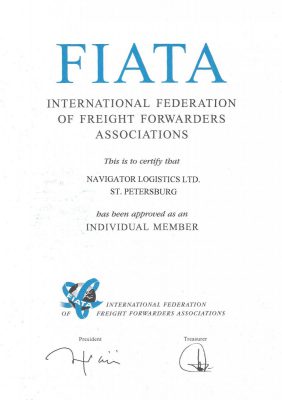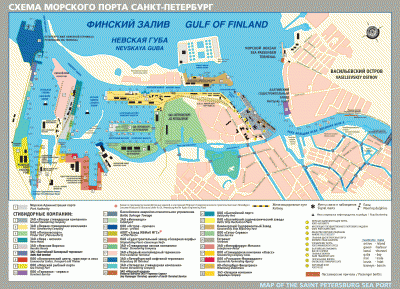Dear clients!
In this section you can find useful information: basic standards and rules of multimodal transportations, more information about types of containers, about classification of cargoes and documents necessary for customs clearance.
New: there is also the map of the sea port of Saint-Petersburg. Watch for updates.
For transportation of goods within the territory of the Russian Federation under customs control (for example, when implementing internal customs transit), a transport organization with a special status of customs carrier may be engaged.
It is involved by decision of the customs authority of departure which is obligatory for all participants of transportation (consignor and consignee, carrier and customs carrier) in case if the customs official doubts that the usual carrier or his transport is able to ensure compliance with provisions of customs legislation.
To make such a decision all circumstances of the transportation, nature of the goods being transported and their status are to be taken into account. For example, whether increased customs duties are imposed on the goods being transported, whether the value added tax is levied, whether licensing of goods is necessary or not, etc. Special attention is paid to the factors that allow considering the possibility of non-payment of fees or non-delivery of goods to the customs authority of destination.
If goods are transported with customs convoy, transportation by customs carrier is not needed. In case payment of customs duties is secured by the pledge of goods or transport, by placing money on deposit or guarantee of the third party, the decision on transportation by customs carrier is taken only under exceptional circumstances and only in respect of goods whose importation to the Russian Federation (as well as exportation from the country) is prohibited or if these goods have not passed the compulsory procedure of the control of other state bodies.
The decision to engage a customs carrier may be taken by the person concerned – consignor, carrier, consignee – with the consent of the customs authority.
To obtain the status of customs carrier an organization is to submit an application to the customs authority concerning inclusion in the Register of Customs Carriers. Moreover the applicant is to meet certain requirements: to be a Russian legal entity, to be the owner of or to have full economic control of fixed assets – buildings, constructions, technology equipped in accordance with the customs rules, to have licenses for transportation and forwarding activities, activity insurance contract, etc.
Depending on the scale of the serviced territory, a customs carrier may be regional or national. The first one carries out the delivery of cargoes between customs authorities of one regional customs administration. The latter carries out transportations within regions of two or more regional administrations up to transportations all over the RF customs territory. To obtain the certificate of inclusion in the Register of Customs Carriers it is necessary to apply to the regional customs administration or to RF Federal Customs Service.



